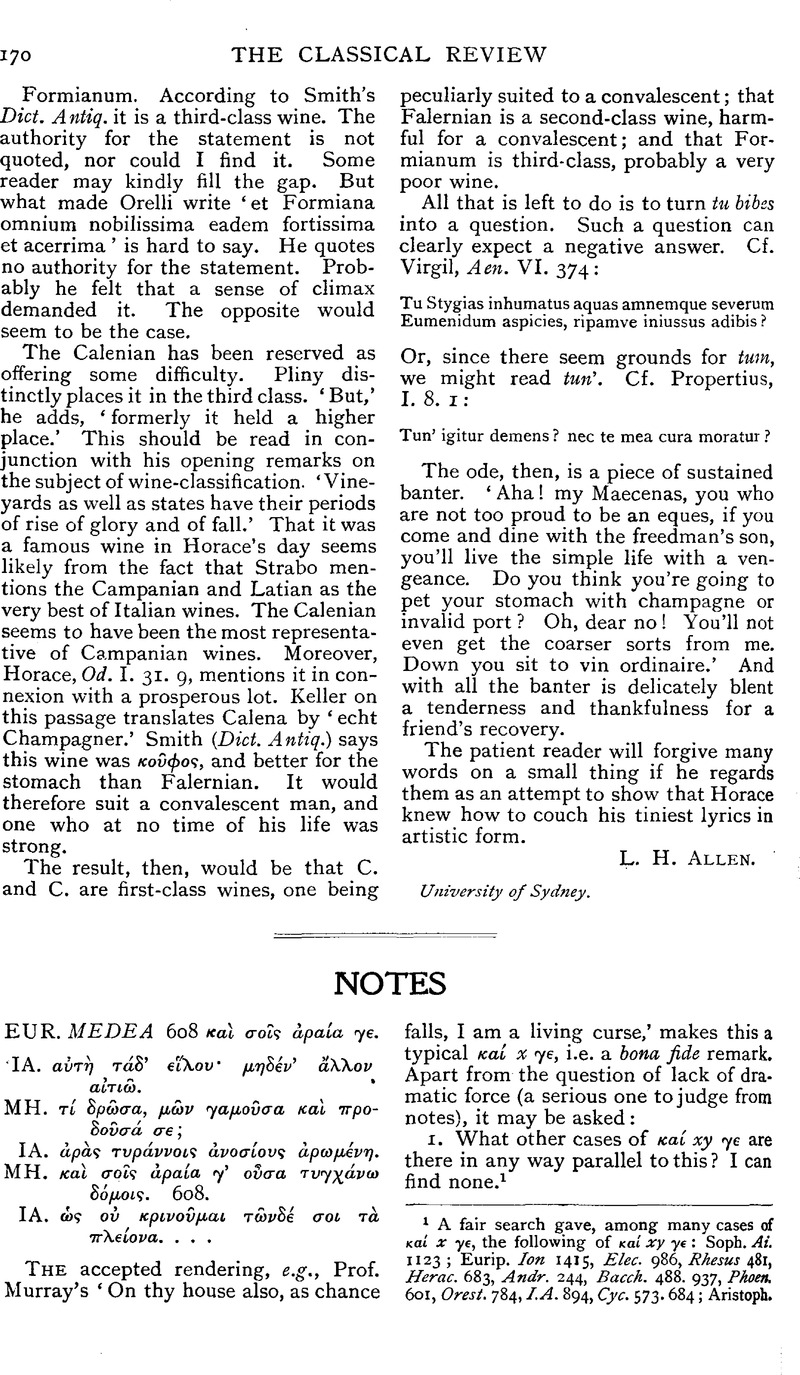No CrossRef data available.
Article contents
Notes
Published online by Cambridge University Press: 27 October 2009
Abstract

- Type
- Notes
- Information
- Copyright
- Copyright © The Classical Association 1911
References
1 A fair search gave, among many cases of κα⋯ x γε ye, the following of κα⋯ xy γε: Soph. Ai. 1123; Eurip. Ion 1415, Elec. 986, Rhesus 481, Herac. 683, Andr. 244, Bacch. 488. 937, Phoen. 601, Orest. 784, I.A. 894, Cyc. 573.684; Aristoph. Eq. 422. 716. 942, Nub. 1068, Vesp. 201. 1003. 1139, Pax 625. 913. 979, Av. 949, Lysistr. 88. 516. 572, Ran. 70. 80. 695, Eccl. 54. 445. Of these some are simply not to the point: κα⋯= ‘both,’ ‘even,’ etc. In very many the two words are one, e.g. ![]() . I omit cases of Aristophanic
. I omit cases of Aristophanic ![]() .… In all cases where κα⋯…γε is not accidental, I submit that 4. infra holds good.
.… In all cases where κα⋯…γε is not accidental, I submit that 4. infra holds good.




